










moreradical calls forchange. Leading the chargeatthe General Assemblywas Mia Mottley,prime minister of Barbados,who called fora“newinternationalism”.
Mottley ’s plans included the IMF issuing another $650bn of its special drawingrights (SD Rs) re se rvec ur re ncyt oh elp finan ce clean- energy projects in developing econo mies.She also called forthe reallocation to developing economies of at least $100bn of the SDRs issued by the IMF last year,aswell as special channels of concessional finance forprojects strengthening resilience to climate change. TheIMF couldcreate its own“special environmental drawing rights”facility
Such proposals arebecomingmainstream. In September,Denmark became the first coun try to offer “loss and damage” compensation to stateshardest hitbyclimatechange. And UN Secretary General AntónioGuterres has been pushing countries to impose windfall taxes on oil and gas companiesmaking mega-profits crisis
The four horsemen of what meteorologists call the climate endgame –conflict,chroni food shortages,extreme weather and vector borne disease –are galloping at an ever faster pace towardsus. In the Sahel, the Indian Ocean seaboardand in the Horn of Africa, theyhavealready arrived and are tearing aswathethrough communities That is whyyoungactivists areonthe streets demanding serious action: anew greendealand the funding to go with it
Prote sters area lso joining up the dots,callingfor widerchange in the multilateral system.Thatstretchesfrom restructuring the UN SecurityCouncil, to reforming the UN’s specialisedagencies, as well as theIMF andthe WorldBank
Thismakes the lack of urgencyall the morepuzzling in therun-up to COP27, the first UN climate summit in Africa, in November.Preparatory talksatthe UN General Assembly attractedonly aderisory number of top decision-makers.The prospects of ground-breaking deal in Egypt,asour editors and correspondents explain in this edition, arefar from stellar.
It is the interconnectedness of the threats al ong si de clim ate chang e–d ee pening inequality,the food and energy crisis or the risksofanother pandemic–thatisdriving
Kris talin a es to help nous shocks damageare on is how ey,along and La tin odemands ernational raUNtax chanism and a emooted erence on year. Egypt climate on climate and comnthe calls louder.
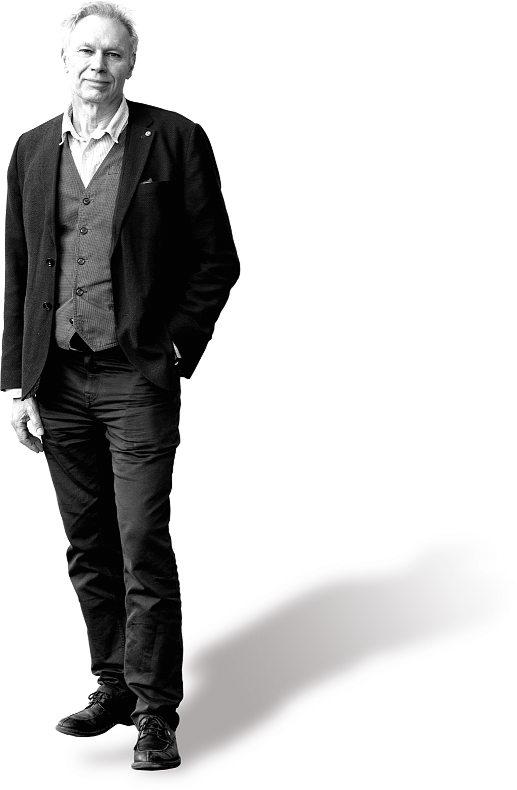
Busine ss experience is not lacking among the top candidates for president in Nigeria’s elections.
Mozambique’s government is hyping up the revenues it expects from LNG production, but oil majors are wary due to rebel attacks.
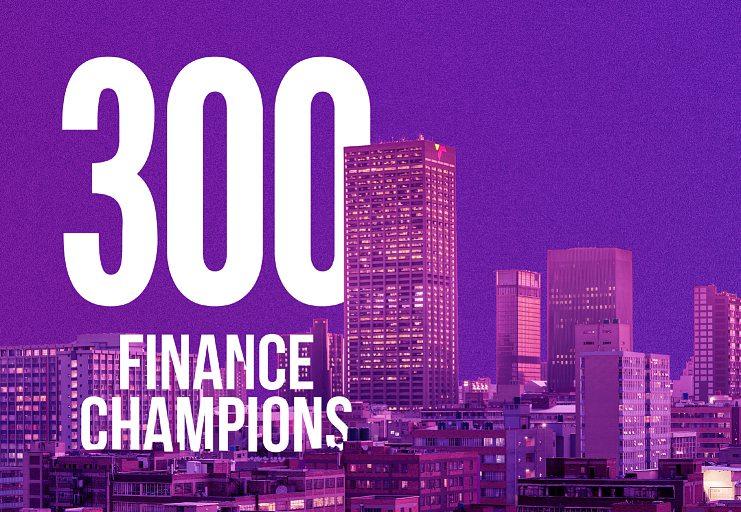
Our ranking of the larges t companie s in the African financial services sector.
THE AFRICA REPORT
BIS, RUE D’AUTEUIL
PARIS FRANCE
TEL: (33) 1 44 30 19 60
FAX: (33) 1 44 30 19 30 www.theafricareport.com
DANIELLE BEN YAHMED publisher@theafricareport.com
EDITOR IN CHIEF PATRICK SMITH MANAGING EDITOR NICHOLAS NORBROOK editorial@theafricareport.comTo find the full editorial team, all our correspondents and much more on our new digital platform, please visit: www.theafricareport.com
Tel: +33 (0)1 44 30 18 34 l.kiraly@jeuneafrique.com
CONTACT FOR SUBSCRIPTION: Webscribe Ltd Unit 4 College Road Business Park College Road North Aston Clinton HP22 5EZ United Kingdom
Tel: + 44 (0)1 442 820580
Fax: + 44 (0)1 442 827912 Email: subs@webscribe.co.uk ExpressMag 8275 Avenue Marco Polo Montréal, QC H1E 7K1, Canada
T : +1 514 355 3333
1 year subscription (4 issues): All destinations: €27 $32 £24
TO ORDER ONLINE: www.theafricareportstore.com
INTERNATIONAL ADVERTISING AND COMMUNICATION AGENCY
57-BIS, RUE D’AUTEUIL 75016 PARIS FRANCE
Tel: (33) 1 44 30 19-60 Fax: (33) 1 44 30 18 34 advertising@theafricareport.com
PRINTER: SIEP 77 FRANCE N° DE COMMISSION PARITAIRE : 0725-I-86885 Dépôt légal à parution / ISSN 1950-4810

President Joe Biden came into office in January 2021 promising a new era of relations with the African continent. Now, almost two years into his first term, Biden’s record on Africa is about to come under the spotlight After months of back-and-forth between federal agencies, secretary of state Antony Blinken in August finally released the new US strat egy for sub -Saharan Africa. This December, Washington will host the US-Africa Leaders Summit for the first time since then president Barack Obama launched the idea in 2014.
Together, the strategy and the summit encap sulate Biden’s vision for developing business ties with a future economic powerhouse, while staving off inroads by China and Russia. At the same time, the administration has recommitted to the longtime US policy of supporting de mocracy in Africa and around the world after
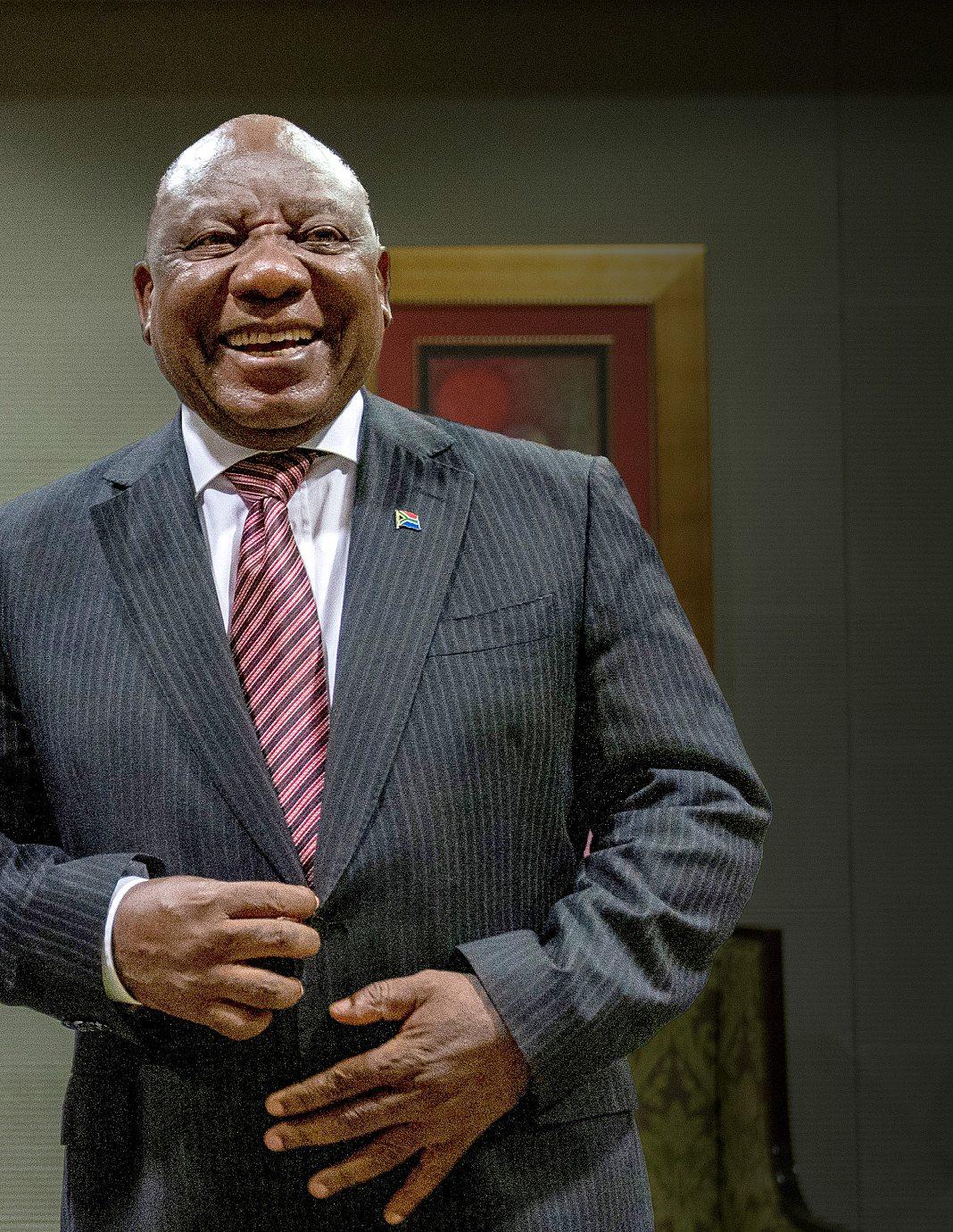
Having lost ground to China during the Trump years, the US is aiming to rebuild trust and trade links with the continent at the US-Africa Leaders Summit in December
four years of “America First” priorities under former president Donald Trump
“There was definitely a deliberate departure from the way that the Trump administration talked about and engaged with Africa,” says Akunna Cook, a Nigerian-American former deputy assistant secretary of state for African affairs. “The bar was at the floor of how you could elevate the discourse on engagement with Africa and base it on mutual respect.”
Now comes a real test of whether US-Africa ties will finally take off or continue to fall far short of their full potential On paper at least, the US has a lot going for it. African governments may resent Western lectures about the risks of dealing with China and admonishments to denounce Russia’s invasion of Ukraine. But many Africans still see the US positively
Critics argue that more can and should be done by the US to prioritise Africa. As of mid-September, neither President Biden nor Vice President Kamala Harris had conducted or even announced a visit to the continent.
“I think there’s a mismatch between the level of engagement [and what is said], which partly comes from the US having so many interests around the world,” says Cook “But also just, frankly, a [lesser] priority placed on Africa.”
Pro-democracy activists also worry about Washington’s support for the region’s autocrats
By inviting a host of authoritarian leaders to the Summit, Biden is giving them a chance to pose with him without making any changes to earn it. “There’s a significant some would say growing chasm between rhetoric and reality,” says Jeffrey Smith, the founder of Vanguard Africa, a US consultancy that represents op position figures such as Uganda’s Bobi Wine
Key to the summit’s success, Cook says, will be how well the US can engage with Africa on a host of issues, from increasing privatesector investment to boosting Africa’s voice in international organisations to helping the continent meet its energy needs in a sustainable way. “I think the fear is that it’s a check-the-box exercise. Like, okay, there’s so many African countries, and if we just bring them all here […] that’s it,” Cook says. “But that’s not really what you want out of a summit. What you need out of a summit is something that meaningfully sets an agenda that you can work on for the next year or two years.”
To date, Africa has been a sideshow in US defence planning, characterised mostly by reactive crisis response. Following the US withdrawal from Afghanistan, Biden's officials have changed their tune
The Joe Biden administration has commit te d to reframing Africa’s importance to US national security interests, vowing to work “by, with and through” African part ners to promote civilian-led, non-violent approaches to conflict resolution whenever possible. The new focus is spelled out in a new National Defense Strategy, which the Biden administration shared with congress in March.
While the document is classified, deputy assistant secretary of defence for African affairs Chidi Blyden outlined its security priorities for Africa in a 12 July testimony before the Senate They are: countering violent extremist organisations; strengthening allies and partners to support ‘mutual security objectives’; and adressing strategic com petition by US ‘adver saries’, namely Russia and China.
No re gion better ex emplifi es the mu ltipronged US approach th an the S a hel. T he zone stretching from Mauritania to Chad is home to the wo rl d’s “faste st-g row ing and most-deadly terrorist groups,” according to the 2022 Global Terrorism Index, accounting for more than a third of terrorism deaths worldwide in 2021.
With rising inse curity fuelling a rash of military coups, a n d Al Qa ed a-lin ke d groups increa sin gly threatening coastal state s along the Gulf of Guine a, the Biden administration has prioritised good governance to help break the cycle of violence. “When governments struggle to maintain se curity, deliver
In January, the US announced it was seeking full membership of the Sahel Alliance
essential service s, upholdhumanitarian principles,orevenprovide economicopportunities andcon fl ic te nv ironments,cond itio ns areripefor [violent extremists] to exploit and appe al to vulner ableand unprote cte dmarginalise d popul ations,” Blyde nt oldt he Senate Foreign Relations Committe einJuly.
Unmentioned, but implied in her remarks, is the disastrous 20-year US intervention in Afghanistan, where Talibanforceseasily overwhelmed government forces after US troopspulled out last year.“As we have seen in other keytheatres,” Blydensaid, “failing to understand root causesatlocal levels and understand our partners,and especially their will to fight,can have significant consequences.”
In response to the lessonslearntinAfghanistan, the Bidenadministration has announcedseveral adjustments to US military policy.InJanuary,the StateDepartment announceditwouldbeseeking full US membership of the Sahel Alliance, aregional partnershiplaunched by European countries to help coordinateaid as the in ternational community shifts from counterterrorism to institution building.
On 1April, theWhite House launched theimplementation of the US ‘Strategy to Prevent Conflictand PromoteStability’, with afocus on sevencountries in Africa, including fivein coastal West Africa (Benin,Côted’Ivoire, Ghana, Guinea and Togo), along withLibya and Mozambique.
The statedgoalisto‘chart anew path toward positive results thatstrengthen democracy, ruleoflaw,security, good governance,genderequityand equality,health, education and respect forhuman rights,all alignedtofuel reservoirs of peace,strength and recovery andextinguish potentialdiscordbeforeitissparked.”
Meanwhile,the newUSStrategy forAfrica,which secretary of state Antony Blinken releasedduring his third triptothe continent in early August,vowstodenounce military coups,humanrightsviolations and corruption in the armedforces.
MvembaDizolele, the director of the Africa programme at the Center forStrategicand International Studies and aveteran of the US Marine Corps Reserve, calls the new Africa strategy is a“welcome” shift that –ifdone right–can help the US rebuildtrust on the continentand reclaim its brand as apromoteroffreedom.
“Securityfor the sakeofsecurity does not lead anywhere,” Dizoleletells The Africa Report.“When we talk about security,often we talk about the failureofsecurity. In the Sahel, we’retalking about howthe social contract
The 16 non-enduring bases (less permanent)
The 13 enduring bases (more permanent)
Country with US bases
Since9/11, the US has builtupasecretive networkofmilitary bases in Africa. Since The Interceptobtained this2019map through the Freedom of Information Act, AFRICOM is known to havemade somechanges, but does not wishtocomment.
has failed.The populations arenot free,they’re not safe, they’re not being protectedbythe government.”
Internaltensions in the US approachabound, however.In Chad, forexample, the State Department hasnot labelledPresident MahamatIdrissDéby’srise to power acoup.But the chairman of the powerful Senate Foreign Relations Committee, Democrat BobMenendez of New Jersey,disagrees. His objections have blocked US security assistancetoChad. “While Chad remains one of the most capablepartnersinthe region, and N’Djamenaisthe new host of the G5 SahelHeadquarters,ending US security cooperation has affectedour bilateral engagement,” Blyden testified beforeMenendez’scommittee.
Russia’s influence on the continent is aprime concern forthe US,particularly the presence of Kremlin-backed Wagner Group forces,which have been accusedofhuman rights abusesand promoting anti-Western rhetoric. While keen to avoiddictating the countries Africans can work with, the newAfrica strategy makes it clearthatthe US hopestobethe continent’s partner of choice.‘In line with the 2022 National Defense Strategy,’ it states, ‘the Department of Defense will engagewith African partners toexpose and highlight the risks ofnegativePCR [China] and Russian activities in Africa.’
Africa is acontinentonthe move. As home to theworld ’s largestfreetrade area,growing economies, and an increasinglyyoung,urban, and digitallyconnectedpopulation, thecontinent ofers tremendousgrowthoppor tunities forshared prosperity on both sidesofthe Atlantic. TheUnitedStatesisreinvigorating our engagement with thecontinent. Ourvision and strategy underscore thevital role that Africa playsinboth geopolitics and theglobal economy. Therising grow th and scale of African businesses in theglobal economyref lects thechanging realities on theground.Thisrapid progress and grow th have ignitedgreaterU.S.interest in Africa as abusiness and investmentdestination.
TheWhite House’sU.S.-Africa Leaders Summit, to be held December 13–15, is an exciting oppor tunity to build on our sharedvalues to foster greater economic engagement. Through theSummit, we aim to strengthen mutuallybeneficialand forwardlooking U.S. and African par tnershipsand investment thatcreate jobsand driveinclusive and sustainable economic grow th.
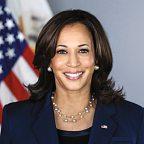
Launchedin2019,ProsperAfricatakes awhole -ofgovernmentapproach to increase two-waytrade and investmentbetween theUnitedStatesand countriesacrossthe African continent. This includes trade and investmentf lows from theUnitedStatesto African nations, as well as from African nationstothe United States.
We areaone -stopshop that bringstogether thefull suiteofU.S.Governmentser vicesand resourcesto help companiesand investors do business in the United States and acrossthe African continent .
Ourteam of ProsperAfrica advisors is dedicatedto suppor ting businesses and investors in accessing the appropriate U.S. Governmentser vices and resources to close deals, generating billionsofdollars in new exportsand investments
 —AliceAlbright, CEO of Millennium Challenge Corporation
—AliceAlbright, CEO of Millennium Challenge Corporation
“Our
goal is to
sustainable economic grow th and development across thecontinent to expand capital flows and to promotethe
of entrepreneurship and innovation that is so prevalent acrossAfrica.”
President Kamala
[W ]e’reacompanythatisworking and helpingwomen inGhana,but we’realsohelping companiesinthe United States. It ’s notjustaone -way situation whereone countr yis suppor ting another countr y. They’re also benefitinginterms of whatiscoming back to theU.S.
—Eugenia Akuete,founderofNaasakle International

For example ,Red RiverFoodsisaVirginia-based driedfruit and nutcompanythat sourcescashews from West Africa. Thecompanypreviouslyshipped cashewstoA siafor processing before exporting to theUnitedStates. Thecompanyhad experienced ineficientsupplychainsfor over adecade ,which wasexacerbatedbythe COVID-19pandemic.
With $3 million in funding from theU.S. Agenc y forInternational Development, RedRiver invested $47million in acashew processing facility in Côte D’Ivoire ,enabling it to source and processcashews in thecountr y. This one deal is expected to delivernearly $32million in exportsand hundredsofjobsfromthe United StatestoCôteD ’Ivoire ,aswellasimprovethe livelihoodsofthousandsofWestAfrican farmers.
ProsperAfrica is also tapping into the$380trillion in global institutional assets,such as pension funds, insurancecompanies, and endowments,todrive investmentinAfrica.For U.S. institutional investors, African infrastruc ture assets and theirinflation resilientreturns representapromising mutually beneficial oppor tunity.A$2.5million investmentfrom theU.S.Governmentexposed delegationsofinvestors to African fundsand mobilizedover$1billion in institutional investor capital into African economies and other emerging marketsinthree years .


Ghana-basedshea butter cosmetics company Naasakle International leveragedfinancing from the U.S. African DevelopmentFoundation forAfrican small and medium-sized companiestoexpor tto over 1,000Targetstoresacross theUnitedStates, suppor ting 10,000 women shea pickers in theprocess. Through investments likethese ,weare moving toward adding greatervalue and fosteringinclusive grow th.And that ’s exactlythe type of mutually beneficial par tnership ProsperAfrica aimstobuild.
Sincelaunching ProsperAfrica,the U.S. Government —harnessing theser vices and resourcesof1 7 governmentagencies—has helped close 800two waytrade and investmentdealsacross 45 African countriesfor an estimated value of $50billion. We arebuilding on this momentumnow by launching innovative, newtools that deliveraccessible ,agile , and competitivepack agesofbusiness suppor t.
ProsperAfrica is all of us —businesses,investors, workers,and governmentleaders acrosstwo continents —working together to deliverresults.
“Wehave theoppor tunit ytoboostinvestmentand job creation in Africa while earning thereturns that we need.Together, we controltrillions of dollars .Wecan usethatcapital not onlytobenefit our stakeholders, butalsotospur social and economic impactinemerging markets.”
—AngelaMiller-May, ChiefInvestmentOficer,IllinoisMunicipal Retirement Fund
Washington wants to boost its economic ties with Africa as a way to compete with China, but it has lost its advantage
To hear the Joe Biden administration tell it, the US government is convinced Africa will be the next economic powerhouse. With a quarter of earth’s population by 2050 and a median age under 20, Africa appears poised to replace China as both a giant consumer market and as the world’s factory Washington insists the US and Africa are a natural fit and has made trade a centrepiece of its US-Africa Leaders Summit in mid-December “Our administration’s goal is to promote inclusive and sustainable economic growth and development across the continent, to ex pand capital flows, and to promote the vibrant spirit of entrepreneurship and innovation that is so prevalent across Africa,” Vice President Kamala Harris said.
As global supply chains come under threat from intensifying competition with China as well as Russia’s invasion of Ukraine, US investment in Africa will be a key focus of the summit On 14 December, the US Chamber of Commerce and the Corporate Council on Africa (CCA) will co-host the Africa Business Forum, the official private-sector stakeholder event of the summit Africa has a role to play, “not just as a market for US exports, but as a major partner in key value chains”, former US trade official and current CCA president Florizelle Liser tells The Af ric a Re po rt “US producers and manufactur ers will use Africa as a place to manufacture prod ucts, as they already do in other parts of the world, like China.” However, the US private sector does not yet seem to be on board.
US exports of goods to the continent were $26.7bn in 2021, down 30% from a high of $38.1bn in 2014, the year of then president Barack Obama’s inaugural
TOP EXPORTERS UNDER THE AFRICAN GROWTH AND OPPORTUNITY ACT (AGOA) IN 2021
SOUTH AFRICA
NIGERIA
KENYA
GHANA ANGOLA
$1.4bn $517m $324m $300m
$2.7bn AFRICA TOTAL
$6.7bn
TOP AMERICAN EXPORT MARKETS (GOODS) IN SUB-SAHARAN AFRICA, 2021
SOUTH AFRICA
NIGERIA
GHANA
ETHIOPIA
KENYA
$5.5Bbn SUB-SAHARAN AFRICA TOTAL
$3.9bn $983m $585m $551m
$16.5bn
TOP EXPORTERS (GOODS) TO THE US FROM SUB-SAHARAN AFRICA, 2021
SOUTH AFRICA
NIGERIA
GHANA
CÔTE D’IVOIRE
ANGOLA
$3.5bn $1.7bn $1.2bn $1.1bn
$15.7bn SUB-SAHARAN AFRICA TOTAL
$28.2bn
US-Africa summit. Two-way trade was $64.3bn barely more than 1% of US global commerce down from a high of $141.9bn in 2008.
“The facts are very, very stubborn,” says Aloysius Ordu, the Nigerian-born director of the Africa Growth Initiative at the Brookings Institution. “Has the US lost competitive ground in Africa? Absolutely. When you talk about trade flows, when you talk about lending, when you talk about investments […], all have decreased in real terms if you compare the period from 2010 to 2017.”
Meanwhile, China has been the continent’s top trading partner since 2009, with bilateral trade reaching a historic high of $254bn last year. The deepening trade relationship has only reinforced African impatience at being lectured by the West about who it should trade with. “If the alternatives are not forthcoming, we’re going to see more pushback from African countries,” says economist Zainab Usman, who heads the Carnegie Endowment’s Africa Program.
Still, Ordu says, the US retains a competitive advan tage in key areas including refined fuels, machinery, transport equipment, technology and food. “If you think of the magnitude, the sheer volume of exports of food that the US could do in terms of exporting to Africa, the potential is tremendous,” Ordu insists. “It could certainly do much, much better than it does.”
Last year, the administration in Washington announced it was doubling down on former president Donald
Cybastion Headquarters -2310 South Miami Boulevard, Suite 138,Durham, NC,27703

Office of Government Affairs -1776K Street NW, Suite 700,Washington, DC,20006
Phone Number: +1 202-984-7548
Email: contactus@cybastiontech.com
www.cybastiontech.com
To fullyembrace the 4thindustrial revolution, African countries need to ratify the Malabo Convention to foster cross-border collaborationamongstcountries building safer cyberspace.
The wealthiest countries worldwidehave benefited significantly from digitaltransformations, with thetechnology sectorgenerating trillions of dollarsfor theireconomies. As Africa continues its digitalization journey, cybersecurity should be thecoreofthis revolution and apriority
With enhanced population involvementand economic gains derived from the digital sector,African governments aredesigning appropriate policies and implementing much-needed digitalization programs.Includinga DigitalProtocol in theAfrican Union’s African Continental Free Trade Agreement (AfCFTA)indicates Africa’s commitment to providing regulatoryframeworks forits digitalization agenda. However, the cybersecuritycomponent is still lacking, with insignificantinvestments in services securing the cyberinfrastructures such as cyber monitoringand detection, cyber-defense,e-governance,and training, making the region an ideal target forcybercriminals.Moreover, withonly15 of the54Africancountries having critical infrastructures such as secured top-tier data centersand the deficit in cybersecurity professionals within thelocal privateand public sectors,the continentrisks losing outonthe fourth industrial revolution.
Thereisanincreasing number of cyber-attacks andcybercrimes in manyAfrican countries. Techcabalreports that Africa loses $4 billion annuallydue to cybercrime. South Africa, Nigeria, and Kenyaare the most affectedAfrican countries, recording an annual estimateof$573million, $500million, and$36million, respectively, in economiclosses.Beyond the financial losses, thelonger-termconsequences of cyberattack disruption are damaging.A case in point is the cyberattack in 2021 on Transnet, aSouthAfricanstate-owned enterpriseresponsible forthe managementofthe nation’s rail,port, and pipeline infrastructure, which crippled activities at the busiest container port in sub-Saharan Africa and shut down thousands of regional operations dependentonthis infrastructure
Dr Thierry Wandji, President&CEO Cybastion Institute of Technology
As Af rica continues its digitalization journe y, cy ber security should be the core of th is revol ut ion and ap riority.
The cybercrime landscape is evolving; therefore, collaborative approaches areneeded to build appropriateresponses to the ever-growingcyberthreat. TheAfrica Unionhas taken the lead in providing digital policy instrumentssuchasthe MalaboCon vention, signedbyonlyeight countries and ratifiedbynone. Ratifying theseagreements will foster cross-border collaboration amongst countries.
Cybastion, an Americancompanywith operations in several African countries, creates robust, world-class cybersecurity solutionstailored to meetthe public and private sectors’ needs by bridging the skill gap and providing training andsophisticated solutionstodetect, monitor,and defend against cyber-attacks.
Trump’s signature Africa initiative, Prosper Africa, and asked for a $160m annual budget twice the previous level. The initiative, which mobilises 17 US agencies and departments to help identify and facilitate trade and investment opportunities, says it helped close some 800 deals in 45 African countries for an estimated value of $50bn over the past three years
Since then, the administration has launched several new initiatives to ease Africa’s shift to clean energy, jumpstart digital transformations and help fill the continent’s massive infrastructure deficit. At the same time, growing African blowback against efforts to re strict international funding for fossil-fuel projects has prompted Biden to reframe its discussion of climatechange mitigation around the notion of a “just energy transition”, especially after Russia’s invasion of Ukraine sparked a global rush for new energy sources.
Much of the China/US competition revolves around access to Africa’s ‘critical minerals’, which are crucial components of mobile phones and electric vehicle batteries. Last year, South Africa exported $3.5bn worth of platinum used to curb emissions from vehicles and power plants to the US. Under the Biden administration, the official line has been to insist that the exploitation of Africa’s mineral wealth be conducted transparently to the benefit of local communities, rather than as a free-for-all between competing outside powers
The administration’s announcement of a $600bn public-private infrastructure fund for the developing world at the G7 summit in June is another effort to compete with China. But some experts question the logic of trying to go headto -he ad. Carnegie's Usman w ro te in Fo re ign Af fa ir s : “Washington should bui ld on the US ’s strengths in advanced technologies and private capital, thereby aligning US interests with the economic de velopment ne eds of Afri can coun tri es.”
Secretary of state Antony Blinken alluded to the US interest in backing such high-tech investments when he unveiled the administration’s new strategy for Africa during his visit to South Africa this year.
The Millennium Challenge Corporation (MCC) set up by George W. Bush in 2004 is one of the agencies helping on that front. To date, the agency has provided more than $9bn in infrastructure grants to 25 African
THE US AND AFRICA,
countries. “Infrastructure development is fundamental to alleviating poverty and fostering sustainable economic growth,” says MCC deputy CEO Mahmoud Bah. “We define infrastructure broadly to include hard infrastructure […] as well as soft infrastructure such as digital technology. Reliable infrastructure enables trade, enhances health and productivity, and catalyses public-private partnerships.”
Other existing programmes are getting a rethink. The Leaders Summit will kick off on 13 December with the annual forum of the African Growth and Opportunity Act (AGOA), which comes up for renewal in 2025. The programme, which grants duty-free access to the US market, has been a cornerstone of the US government’s economic policy toward Africa since President Bill Clinton signed it into law in 2000 But it is coming under heavy scrutiny by policymakers who want to end non-reciprocal trade benefits to the continent. Currently 36 countries are eligible for AGOA benefits after Ethiopia, Guinea and Mali were suspended over human rights abuses and democratic backsliding. But nearly 80% of $6.7bn in exports under the programme came from just five countries last year, and only 16 have put in place a strategy to take full advantage of its benefits “Much has changed in the 21 years since AGOA was created, and […] my goal as the US Trade Representative is to help create the conditions necessary for a long-term, durable trade and investment relationship between the US and Africa,” Katherine Tai said at least year’s virtual AGOA ministerial meeting
MCC
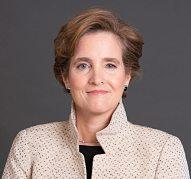
Press@mcc.gov
Goods, services,and people move across border seve ry daya nd so sho uld our capital. Countries can grow faster,create more jobs, and attract additional privatesector investments when theyare apart of dynamic regional markets. Nowhereisthis moreapplicable than across Africa.
The African Continental Free Trade Area (AfCFTA) will be the world'slargest freetrade area with amarket of morethan 1.3 billionpeople, yetthereare alsosmaller, re gional economic communities tha t impact each country’seconomic growth and will influencethe effectiveness of the AfCFTA. COVID-19 and climate change threaten to undercut decades of progress across Africa. At theMillenniumChallenge
Corporation (MCC),webelieve the most effectiveway to counter this trend is by building interconnected economies of scale —fromrural communities to multinational business corridors.
Forexample, MCC’s first-everregional program betwe en Benin and Niger will incr ease coordina tion on tr ade and transportationwhile building on MCC’s pr ev iou si nv estme nt sa tt he Po rt of Cotonou andinNiger’s agriculturesector
By pairing enhancedregional integration and policyreforms with MCC’sproven, data-driven developmentgrants, we can connectcountries through foundational infrastructure—suchaspower, water,and roads —and trulyunleash economic growth.

"The most effectiveway to counter this trend is by building interconnected economies of scale —fromrural communities to multinational business corridors."
Although the past two years have presented us with challenging times, Medland Hospital remains committed to delivering international, quality,and compassionate caretoour patients while advancing specialized care.”
Dr.Mohamed El Sahili, Chief Executive &Vision Officer
Established in 2019, Medland Hospital offers comprehensive services that meet the healthcareneeds of our community.With acapacity of 72 beds, we arecommitted to delivering high value carefor patients, offering awide range of medical and surgical specialties in Lusaka, Zambia.


Medland Hospital provides patient centered careinanenvironment where safety,comfort, convenience, compassion, and medical ethics come together Our aim is not only to meet the healthcareneeds of our community,but to set new standards in quality and innovation in patient care, teaching, and community service. In our commitment to providing innovative and quality healthcareservices of advanced international standards, we areactive members of the International Health Federation and members of the Corporate Council Africa.
As away to ensurecontinuity of care, Medland Hospital offers awide range of medical services using amultidisciplinary approach and carecoordination. To cater to the major services patient usually seek outside of the continent, Medland Hospital offers specialty services and international expertise in Zambia. Signatureservices include interventional cardiology and cardiothoracic surgery,women’swellness, orthopedics, and urology.Aided with advanced equipment, Medland Hospital provides medical services in pain management, cardiology,critical care, diagnostic imaging, ENT,gastroenterology, general surgery,neonatology,ophthalmology,pediatrics, pulmonology,and primary careservice.
Diaspora groups are becoming more influential as the government in Washington seeks to mobilise African US residents to strengthen its policies and actions on the ground
More than 100 Nigerian Americans and their supporters descended on Washington’s Mandarin Oriental Hotel this April to celebrate the record number of dias pora Africans in the government of President Joe Biden. The first-of-its-kind gala hon oured top officials across the US government Guests of honour included then deputy assistant secretary of state for African affairs Akunna Cook; US Trade and Development Agency director Enoh T. Ebong; and then associate White House counsel Funmi Olorunnipa Badejo. World Trade Organisation director-general Ngozi Okonjo -Iweala attended the event in a telling display of the African diaspora’s growing clout.
The diaspora’s increasing visibility coincides with a surge in African born immigrants. Since 2015, the number of US re sidents born on the continent has surpassed two million, according to the US Census Bureau up more than 10-fold since 1980 Adding their US-born children more than doubles that estimate. Nigeria tops the list, with 327,000 Nigeria-born US residents in 2015. Ethiopia (222,000), Egypt (192,000), Ghana (155,000) and Kenya (136,000) round out the top five.
Africa-born US re sidents are on average more highly educate d
than either immigrants overall or the US-born popu lation. They are also relatively wealthy, contributing billions of dollars in remittances every year. African politicians have taken note, with candidates for office routinely stopping by the US to court the influential and deep -pocketed Africans.
The Biden team is also courting them. During the 2020 presidential race, the Biden-Harris campaign released an “agenda for the African diaspora” that vowed to break with Trump’s “inhumane immigration policies” and make engagement with the continent a priority. Since then, the administration has made the diaspora an important focus of policy for Africa as it looks to boost two-way trade and take advantage of growing business opportunities.
“By 2050, one in four people on this planet [will come] from Africa,” secretary of state Antony Blinken reminded alumni of US-funded exchange programmes in August, on his return from the continent. “That is the definition of the future, and we have a profound stake in trying to get that shared future right,” he said.
With an army of highly educated immigrants who are successful in key industries, notably healthcare, the diaspora “could be the springboard for strengthening US engagement with African countries in those industries”, says Zainab Usman, who heads the Africa programme at the Carnegie Endowment for International Peace For the US this represents a major asset when competing with China on the continent.
Promises to engage the diaspora have been a leitmotif of Biden’s Africa strategy since the early days of his administration. “We will provide targeted support to small and medium-sized businesses with a specific focus on the African diaspora and their businesses and investors across the US,” then National Security Council senior director for Africa Dana Banks announced at the virtual US-Africa Business Summit in July 2021 The shift was part of the admin istration’s request for $80m more in funding for Prosper Africa, the Trump administration initiative gathering 17 US agencies and depart


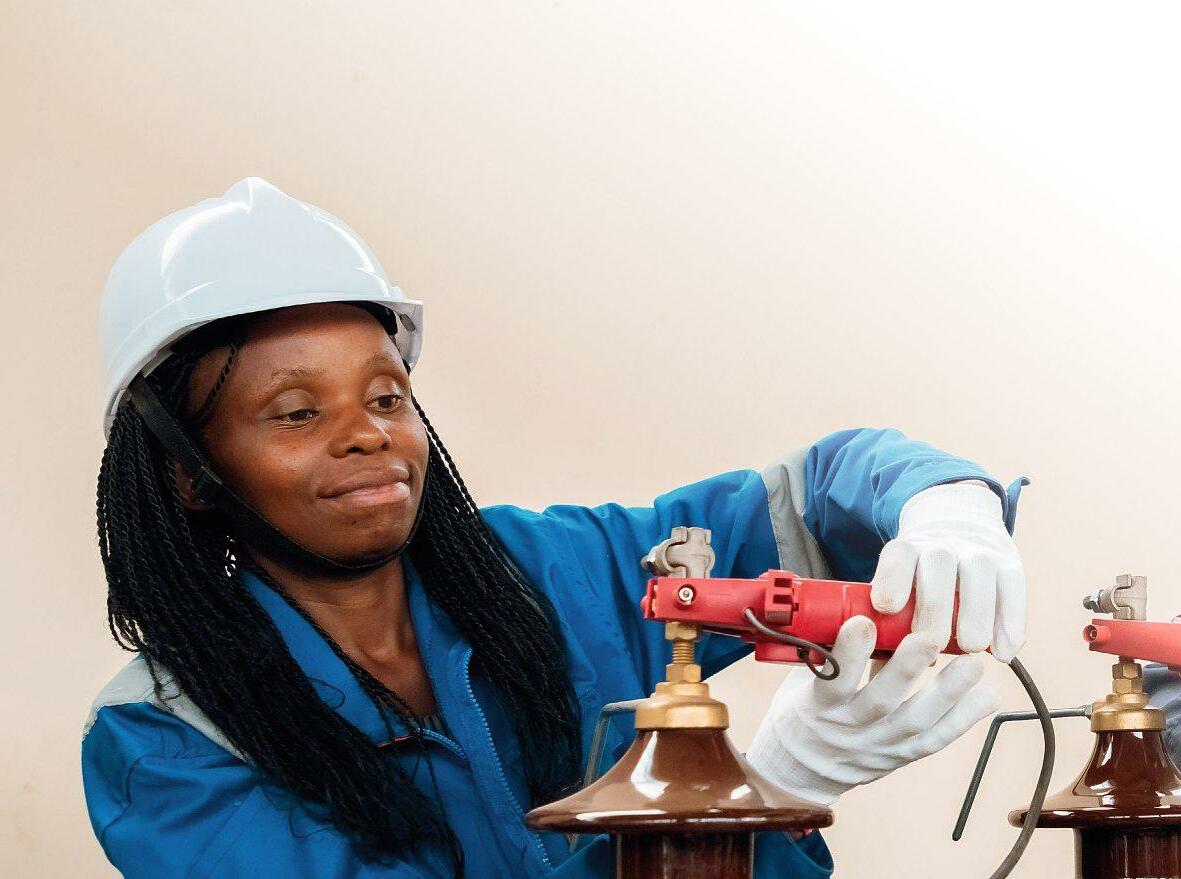



Ethiopian Americans protesting against the White House’s support for the TPLF

ments to help identify and facilitate trade and investment opportunities.
Congress led by efforts from the Congressional Black Caucus has provided the US African Development Foundation (USADF) with funding specifically dedicated to diaspora engagement in the US. The agency has been ramping up diaspora engagement at the university and community level through roadshows in cities with large African diaspora populations.
The new US strategy for Africa that secretary of state Blinken unveiled on 8 August during his stop in South Africa vows to continue to “elevate our diaspora engagement” in order to “strengthen the dialogue between US officials and the diaspora in the US”. The strategy notably says the US will support the UN’s Permanent Forum of Pe ople of Af rican Descent, a new adviso ry body to the Human Rights Council. The forum is slated to host its first session this December in Geneva
While the US government hopes to leverage the dias pora to deepen ties with the continent, African groups in the US are having their own impact. This April, for example, Cameroonian activists helped persuade the Biden administration to shield some 40,000 people from deportation and enable them to obtain US work permits amid worsening violence in the country.
Nigerians in the US have long drawn attention to insecurity in their home country Iyore James, leader
of the Nigerian Physicians Advocacy Group, tells The Africa Report that her organisation is looking to host an event with US and Nigerian officials in Washington prior to the December summit to discuss voter safety ahead of next year’s Nigerian election.
According to James, diaspora engagement is also crucial for the US administration’s goal of promoting democracy. “I am of the opinion that the fundamental issue in Nigeria […] is failure in leadership, perhaps unintentional,” she says “I think tapping into the dias pora’s unique cultural knowledge could better inform the US administration on effective ways to solidify democracy Better governance would improve trade relations, [...] curtail security crises and certainly ensure protection of fundamental human rights.”
No diaspora groups have been more politically influential than Ethiopian Americans since war broke out in the north of the country in November 2020. Deep fissures between the Tigrayan community and supporters of Prime Minister Abiy Ahmed in particular have played out in Congress, where duelling narratives about the conflict have led to gridlock
The conflict has also brought parts of the Ethiopian American community closer together Last year, crit ics of the Tigray People’s Liberation Front launched the American Ethiopia Public Affairs Committe e (AEPAC), which supports the country ’s integrity but also champions Ethiopian American candidates for political office. “We’re hoping that we’re building a foundation for something that’s going to last for decades to come,” says AEPAC member Nebiyu Asfaw. “And Americans of Ethiopian descent into the future can utilise this coalition and institution, and help the community continue to be active, positive contributors in the American political discourse.”
Diaspora engagement is crucial for the US goal of promoting democracyDANIEL SLIM/AFP
Corporate CouncilonAfrica (CCA) is the leading U.S. business association focused solely on connectingbusinessinterests in Africaand promoting business and investmentbetween the US and the nations of Africa.CCA is pleasedtospotlight a fewofour member companies that are doing great
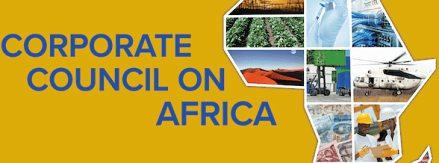
atecouncilonafrica



Healthcare is the $17.7 billion healthcare business of GE (NYSE: GE). GE Healthcare enables clinicians to make faster, moreinformed decisions through intelligentdevices,dataanalytics, applications and services,supportedbyits Edisonintelligence platform. With over 100 years of healthcare industry experience
and around 48,000employees globally,the company operates at the center of anecosystem working toward precision health, digitizing healthcare, helpingdriveproduc tivity and improveoutcomes for patients,providers,health systems and researchers around the world. Formoreinformation,visit our website atwww.gehealthcare.com.
Formoreinformation,visit ourwebsite at www.gehealthcare.com
astern and Southern African Trade Advisers Limited (ESATAL) is a subsidiary of TDBGroup, and thefund manager of the Eastern and Southern AfricanTrade Fund (ESATF).
ESTAFis anopen-ended collective investmentfundwhich focuses on advancing trade-led economic and socialdevelopmentin Africa via the financing of shortto medium-term trade transactions, including thoseofSMEs
Ebène,Mauritius
Tel: (+230) 4601500
Email: daniel.lamchun@tdbgroup.org
ESATAL and ESATF are part of TDB Group’s asset and fund management activities which are focused on thedesign, origination, and growth of stand-alone investment vehicles for a wide range of investors and developmentpartners In addition to ESATAL,TDB Group a lsocompri se st he Tra de a nd DevelopmentBank (TDB), Trade a nd Deve lopmentFund (TDF), TDB CaptiveInsurance(TCI), and theTDB Academy.
F
romour humble beginnings a decade ago,wehave grown to become a keyenergy playerin the East and CentralAfricanregion with among others a 40% market share in South Sudaninimpor ting, distributing, and retailing petroleum products.Besides South Sudanwehave a growing regional footprintwithpresencecurrently in Kenya,DRC,CongoBrazzaville and a globalofficeinDubai. We a re dedic a te dt od eliv er quality products atcompetitive prices with exemplary customer
2nd
service. Our objectiveistobuild a sustainable Pan-Africanbusiness to transform the lives of our cus tomers while creating a positive impact in the environmentwe operate in. Trinity Energy is the first indigenous South Sudanese company to be ISO90012015 certified. We are a signatory to the United Nations GlobalCompact as a furthercommitmenttosus tainable businesspractices.Trinity Energy is dedicatedtodelivering homegrown solutionsfor Africa’s energy transformation.
ajiya Rabi Habibu harvests 70 bags of corn per hectare, up from 5bags.She is one of 50,000 Nig eri a ns m a ll holder fa rmers sowing benefits through a grant to ThriveAgric from the USAIDWest Africa Trade &InvestmentFund.

The Trade Hub’sblended finance mod el un ites the priva te a nd public sectorstoboostfoodsecurity,improve agri-business, address climate change and generate jobs
The results are impressive:The blended financemodel supports 87 public-private partnerships, le ve r a ging mor et h a n$ 70 0
mill ion in private capitalin23 value chains,over$600 million in exports and 73,000 newjobs When localvoices and expertise are supportedbyglobalbestpractices and resources, the results canbetransformative. Creative As so ci a te sI nt ern a tion a lh a s applied theseprinciples in Africa fornearly four decades,having a positive and sustainableeffect on education, employment and much more.
• Energy solution in Africa IntegratedPan-Africanenergy company focused on quality and affordable energy
Fresh from the release of the newUSstrategy forsub -Saharan Africa, and meremonths away from theDecember US-Africa Leaders Summit inWashington,the top twoAfrica officials at the White House arehaving their moment in the spotlight.President Joe Bidenand vice-president KamalaHarris have promised a“part nership of equals”with the continent.Now the pressure is on Dana Banks,the special adviser forthe US-Africa Leaders Summit at the National Security Council (NSC), and her successor as NSC senior director forAfrican affairs,JuddDevermont,totranslate the lofty rhetoric into concrete action.
“What the Biden-Harris administration understandsis thatthe continenthas changed dramaticallyoverthe past 30 years,and the worldhas changed,” says Devermont, who is also the chief architect of the newstrategy.“And so we’re trying to bank the benefits and the goodwill of the past 30 years,but also position ourselves to be acritical partner goingforward.”
“We’vestarted offthisprocess with alot of consulta tions [with] keystakeholders on the continent,through our embassies […] as well as the African diplomaticcorps here, civil society,members of the diasporathe youth
the private sector,” Banks says.The main takeaway?


“We’veheard theydonot want apaternalistictype of engagement.” Much of the focus at the summit will be on boosting tradeand investment.The three- dayevent is also expectedtofeaturenew initiatives in health, food security,infrastructureand climate mitigation, Bankssays, to “helpour African partners buildtheir economies back [from Covid] and give jobs to their peoplethat will addressthe youth bulge.”
Askedwhether the administration wouldput taxpayer moneywhereits mouth is,Banksresponded with an adamant “Yes”. “Obviously,we’re not going to put out programmes[…] without providing adequate funding forthem,”she says.Washingtonwantsto“makesure that ourAfrican partners will be abletosay:‘The [US] President has heardus, and we areabletowalk away withsomethingthat’sresponsivetoour publics and meets theneed in our countries.’”

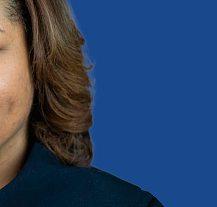
Keeping African partners happyisonly half of the equation. The Bidenadministrationisalso intent on pressing forhumanrights and democracyonthe continent afterthosehallmarksof lby
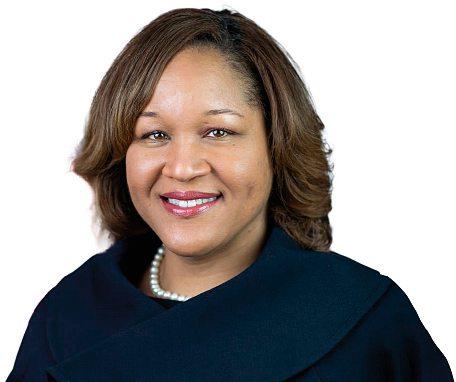
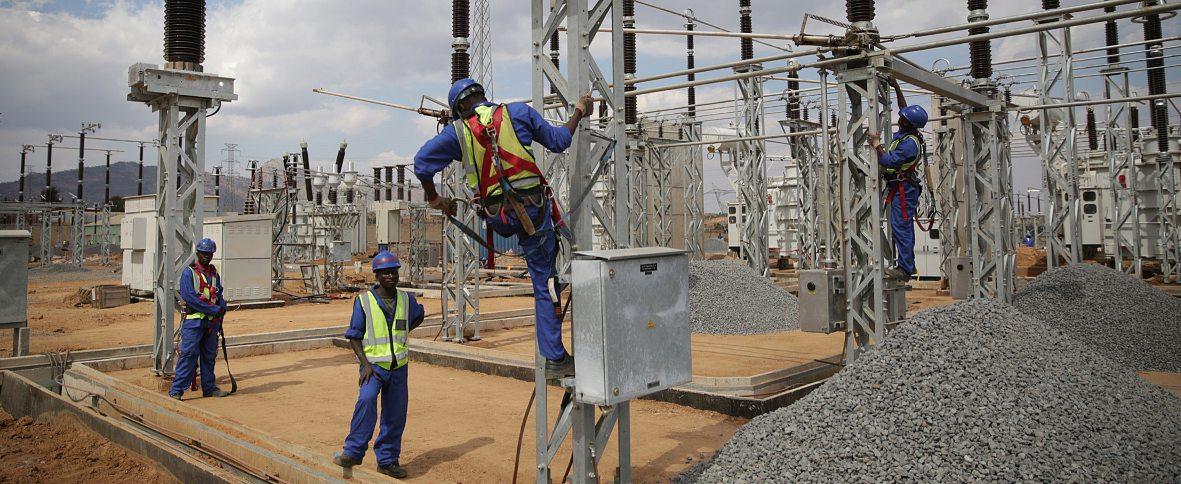


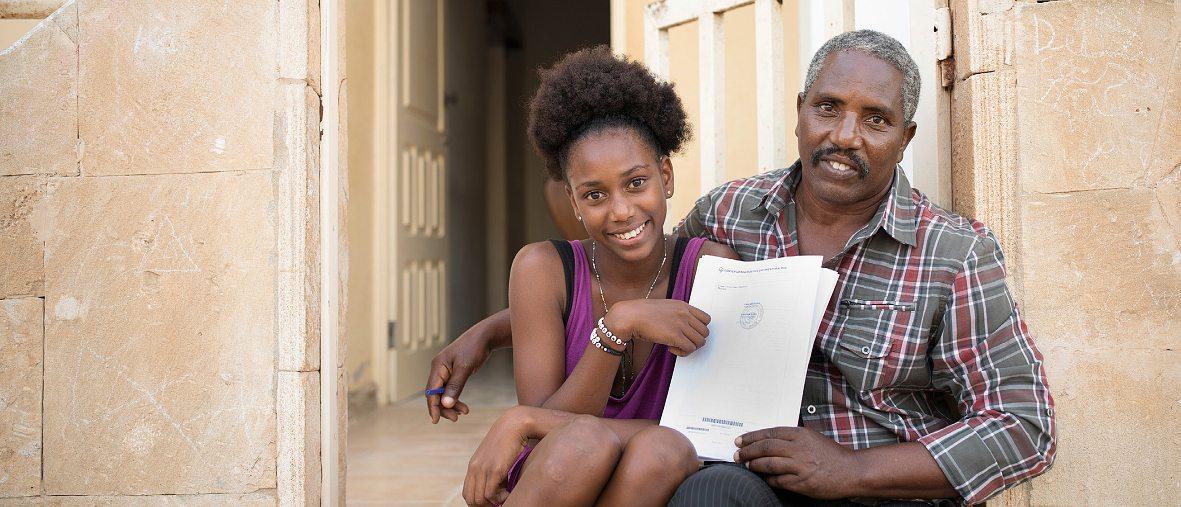
the wayside during the Donald Trump administration Devermont’s strategy notes with concern that only eight countries on the continent were rated as ‘fre e’ by Freedom House this ye ar the worst showing since 1991
Yet, only governments that do not have diplomatic relations with the US (Eritrea, Western Sahara) or which have been suspended by the African Union (Burkina Faso, Guinea, Mali and Sudan) are not invited.
“There are countries across the continent who are challenged on the democracy and governance side,” Banks acknowledges. “But it’s important to have those conversations, right? […] That is the mature engagement that we are seeking with our African partners.”
China is another balancing act for US policy. The Biden administration has repeatedly insisted that it would not force Africans to choose between Washington and Beijing. Yet, the new strategy explicitly accuses China of using Africa as an “important arena to challenge the rules -based international order” and we aken US influence. And when reports emerge d in early 2022 that China could be eyeing a naval base on the Atlantic Coast, the administration dis patched top diplomats to Equatorial Guinea.
When asked to identi fy the US red lines when it comes to Chinese mil itary influence on the continent, Devermont de cline d. “What I’ll say here,” he tells The Africa Report, “is that we’re working with our African partners and asking them what are their expectations for their relationships with us, and with our competitors We’re asking them to define and work with us on what are the standards of accountability and transparency that are important to all of us And to make sure that what we do, sep arately and together, doesn’t impact or undercut our national interests or their sovereignty.”
He continues: “The strategy is not about China and Russia. It notes the strategic context of this moment, but it’s really about what we will do and want to do with our partners, and how we see African countries and the public and leaders playing a role on the world stage.”
One key arena in the competition with China is, of course, trade, where the U S has be en lagging
behind Beijing since 2009. The African Growth and Opportunity Act (AGOA) has been a key policy of US economic engagement with sub -Saharan Africa for the past two decades But, with the programme up for review in 2025, debate is brewing over whether granting Africa duty-free access to the US market still makes sense
Devermont disagrees with critics who argue that the unilateral benefit basically amounts to an aid programme in disguise AGOA “has made a substan tial impact, particularly in its early years, in terms of growing our trade relationship and growing industries on the continent,” he says Still, he acknowledges that AGOA is under scrutiny as the US and Africa rethink “what makes sense to drive and deepen our trading relationships, now and in the future”
The summit is also expected to solidify US support for the African Continental Free Trade Area (AfCFTA). “That is also an area where we are taking the AU’s lead and working with them,” Banks says. “We do anticipate that there will be a deliverable for the summit that really […] shows our interest in wanting to fully support the AfCFTA.
Capacity building Security is another area where the administration is trying different approaches. With the Sahel emerging as the world’s new terrorism hotspot, the US, along with other Western powers, has been shifting the focus toward nation-building in an area where poor governance is seen as a root cause of insecurity. At the same time, President Biden has sent several hundred US troops back to Somalia amid a resurgent Islamist insurgency. Banks and Devermont insist the two approaches are not all that different “Our strategy for Somalia in terms of repositioning troops is a decision that was made to build partner capacity, to enable [Somali security forces] to address the threat from Al-Shabaab,” Banks says. “So I wouldn’'t frame it necessarily as a decision that was made in order to defeat Al-Shabaab It’s really about building partner capacity.”
Whether it is on trade, climate change or rebuilding economies set back by the Covid-19 pandemic, the Biden team’s goal is to work with Africans to define the rules of the road. “In today’s world, and as we look toward the future, the most important challenges that we face, if we are going to be successful in tackling them, then it has to be done in partnership with Africans,” Devermont says “It has to have African ownership and agency, African leadership.” The ability to deliver on that promise will determine whether the summit and Biden’s Africa policy are a success
‘Tackling the challenges has to be done with African ownership and agency’
ABD Group is aproject developer focused on Africa. ABD Group infrastructureprojects haveresulted in morethan $2.5 billion investedacrossthe continent. Projects range acrosshealthcare, transport, water, wastewater, higher education, energy, and agriculture.

ABD Group was founded 15 yearsago by John Nevergoleand Mohamed Keita. After completing severalsuccessful crossborder deals together, John based in the U.S. and Mohamed based in Mali, the twofoundersrealized theyhad developed an understanding of what it takestosuccessfully operateacrosscultures and borders. Thus, ABD Group was founded with the mission of being a project developer focused on Africaand atrusted partner to investors,multi-national firms and African governments.

ABD Group CEO John Nevergoleserves on the President’sAdvisory Council forDoing Business in Africa(PAC– DBIA), which is acommittee of Senior U.S. BusinessExecutives that advise the President of the United States on commercial engagement with Africa. Through this role,ABD Group is lending its experience, in connection with other major U.S. multi-nationals, on howto increase trade and serveasthe bridge between U.S and African political and businessleaders.
Côted’Ivoire:
ABD Group is the developer of aproject to financeand build over100 hospitals acrossthe country, with afocus on maternal health. The totalproject size is $320 million and construction is currentlyon-going. This project was announced as part of President Biden’slaunchofthe Partnership forGlobal Infrastructureand Investment at the G7 earlier this year
ABD Group is the developer of aproject to financeand build the Ziguinchorand Tobor bridge in Senegal which will ensure the vitality of akey trade corridor between Senegal and its neighbors.Secretary Anthony Blinkenwitnessed the signing of an MOU betweenABD Group and theGovernmentofSenegal during hisvisit to Senegal in November 2021.

ABD Group has astrong presence in West Africa and plans to continue to grow its presenceinthe market. At the same time ABD Group is currentlyexpanding into Angola, Rwanda and Tanzania with plans forfurtherexpansionintoUganda and
